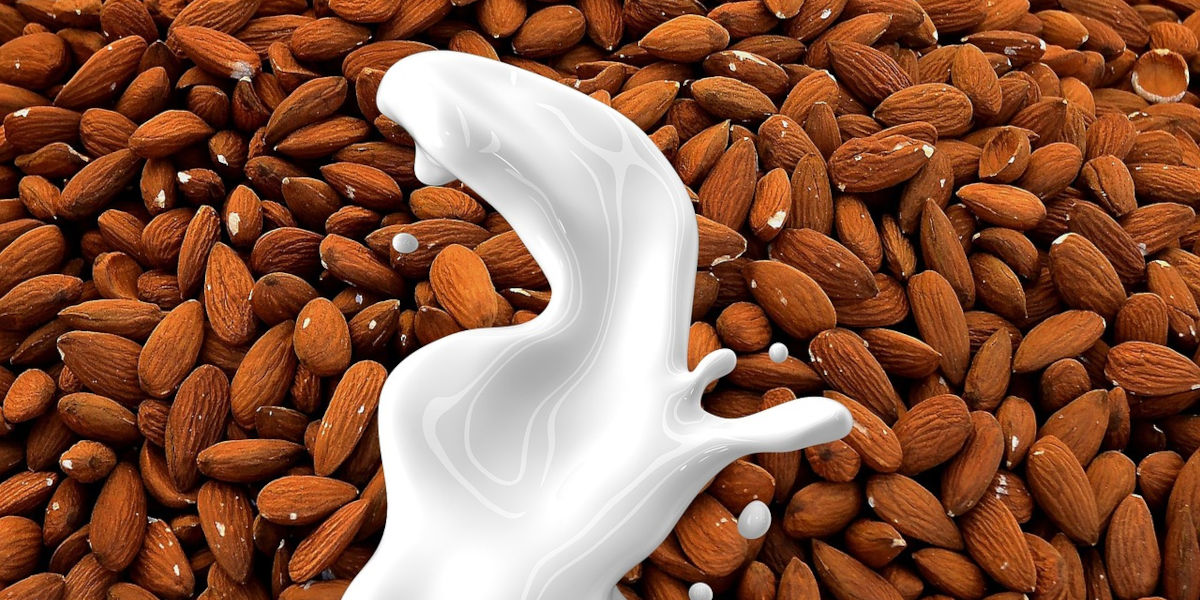Welcome, dearest readers, to another glorious episode of Alternative Milk Madness, the thrilling saga where we tinker with dairy just enough to make it awkward for generations of humans who spent centuries figuring out how to squeeze udders correctly. We're back at it again; popping the lid on the comedy of milk alternatives, strolling down the absurdity lane of non-dairy milk and, for some inexplicable reason, obsessing over why alternative milks are so popular.
But why, you ask, are we giving our beloved traditional milk (a natural by-product that has lovingly supported growth and bone health in humans for millennia), the proverbial boot, and replacing it with all kinds of nutty, grainy, seedonaceous impostors? Is it an act of defiance? A silent rebellion against the bovines? Or just an elaborate scheme by the nut industry?
The Absurdity of Non-Dairy Milk: Fishing Out The Nut From The Milk
We've mutated the very definition of milk to include what might be ballparked as, uh, 'tree squeezins'. Almond, soy, oat, rice, hemp, flax, cashew, coconut: every plant with a remotely squeezable factor is being wrangled and wrung out in the pursuit of the next 'mock milk'.
But the comedy of milk alternatives doesn't stop at their origins. No, my dear friends, it carries forward into the noble quest of making these plant-based substitutes taste like actual milk. We tattoo them with vitamin D, we jazz them up with calcium, and we give them a good whipping until they develop a consistency that doesn't immediately remind us of wallpaper paste.
A Nutty Affair: The Comedy of Milk Alternatives
Let's take a moment to appreciate the hilarious overachiever in this group - the almond milk. Here we have almonds, the zesty little nuts, who woke up one fine day and said "Why should cows have all the fun? Let's be milk!" And so began the tedious process of soaking, blending, and straining these little nutty soldiers until they offered us a pale, watery substance that is now sold for four quid a pop at the local health food store. Nobel Prize for determination anyone?
Why Are Alternative Milks So Popular? The Mock rebelliotion
So why, in the ditch dairy land of gluten-free, sugar-free, fun-free foodstuffs, have these milk alternatives risen to such prominence? The answer seems to be multi-layered, much like the coconut milk that silently rose to glory on the back of hipster coffee.
First, there's the trendy allure of going 'dairy-free', a way of living that feels like flying in the face of the tradition, science, lactose, and all those chubby, sweet-faced cows grazing in the pastures. Then there's the cheerful torture of self-righteousness, the kind that only comes with drinking something that was formerly classified as a 'solid'. And let's not forget the Instagram appeal - a glass of cloudy almond milk practically demands its own sepia-filtered story.
However, this newfound alliance breeds a new form of conflict: the war of nutritional value. In one corner, you've got your unassuming "didn't-ask-to-be-here-but-here-anyway" almond milk. Boasting barely any protein and a list of additives, it stands to question the reason for its existence. Sure, it's the perfect companion for your gluten-free, no sugar added, vegan brownies, but what about Nathan, who needs his protein fix for his 6 am workouts? Yet, its low-calorie content allows it to sneak into the mini-fridge of the weight-conscious, further fueling its popularity.
Soy Milk: The Seasoned Veteran
Enter Soy Milk. This seasoned veteran of the dairy alternative scene doesn't take bull from anyone. Equipped with a solid 8 grams of protein, Soy Milk doesn't fit the skinny stereotype of dairy alternatives.
Yet, controversy swirls around our brave protagonist. GMOs, estrogen levels, and deforestation accusations loom over its head like a thundercloud. Has Soy Milk gone sour? Or are these just propaganda from the cow-milk supporters?
Oat Milk: The Dark Horse
Emerging from the shadows rides the dark horse of the non-dairy scene - Oat Milk. It's an enigma, surrounded by an aura of mystery, and a wild, rich taste. Packing a punch with its fiber content yet dishing out a hefty amount of energy(don't even get me started on the sugar), it's a contender that's difficult to ignore.
However, Oat Milk is not without scandal. It’s a notorious water guzzler, draining precious resources without so much as a backward glance. Our darling Oat Milk isn't as innocent as we might have hoped.
"The Rise of the Alternatives" or the Fall of the Original?
As with any good drama, the original characters question their significance. Cow's Milk, once the unchallenged champion of breakfast tables worldwide, now stares at its less popular self in the reflective inside of supermarket refrigerators. However, it relies on its loyal following – the purists, the traditionalists, the "if it ain't broke, don't fix it" folks. In them, it finds solace.
Whether you're team cow, almond, soy, or oat, one thing's clear – these milk alternatives aren't being skimmed off the surface anytime soon. As the plot thickens, who will emerge as the ultim-udder choice of mankind? Will cow milk manage to squeeze past the competition, or will we continue to bottle up new alternatives?
Well, if nothing else, one thing's for sure - we've all developed an uncanny ability to milk something for all it's worth, haven't we?




